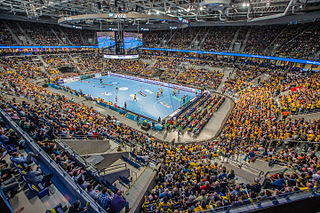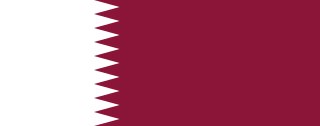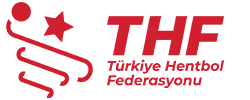
Handball is a team sport in which two teams of seven players each pass a ball using their hands with the aim of throwing it into the goal of the opposing team. A standard match consists of two periods of 30 minutes, and the team that scores more goals wins.
The European Men's Handball Championship is the official competition for senior men's national handball teams of Europe and takes place every two years since 1994, in the even-numbered year between the World Championship. In addition to crowning the European champions, the tournament also serves as a qualifying tournament for the Olympic Games and World Championship. The most successful team is Sweden who have won five titles. Spain, however, have won most medals.
The European Women's Handball Championship is the official competition for senior women's national handball teams of Europe, and takes place every two years. In addition to crowning the European champions, the tournament also serves as a qualifying tournament for the Olympic Games and World Championship. As of December 2022, the only teams that have ever won the championship are Norway, Denmark, Hungary, Montenegro and France.

Wiener Stadthalle is a multi-purpose indoor arena and convention center located in the 15th district of Vienna, Austria. Austrian architect Roland Rainer designed the original halls which were constructed between 1953 and 1958, and later expanded in 1974, 1994 and 2006. The main hall, a multi-purpose venue, is Austria's largest indoor arena with a seating capacity of approximately 16,152 people.

The Sweden men's national handball team is controlled by the Swedish Handball Association. Its most successful periods were under coaches Curt Wadmark (1948–1967) and Bengt Johansson (1988–2004). The team under Bengt Johansson, nicknamed Bengan Boys in Sweden, is regarded as one of the finest national teams in the history of the sport with players like Tomas Svensson, Staffan Olsson, Magnus Wislander and Stefan Lövgren. From 1990 through 2002 the team reached the medal round in every championship and qualified for a record 8 championship finals in a row 1996–2002.

Etvin Carl Pauli Jørgensen, known simply as Pauli Jørgensen, was a Danish amateur football player and manager. In his position of centre forward, Jørgensen played 297 matches and scored 288 goals for Boldklubben Frem. He won four Danish championships with Frem as a player and coached the team to a fifth title. He played 47 international matches and scored 44 goals for the Denmark national team, making him the most capped Danish player for 22 years following his retirement. Furthermore, Jørgensen played around 75 matches for the Copenhagen representative team Stævnet.
The 1954 World Men's Handball Championship was the second indoor handball world championship. It was held in Sweden from 13–17 January 1954, and the hosts also won the championship.
Franz "Bimbo" Binder was an Austrian football player and coach who played as a forward. Internationally he represented the Austria national football team and the Germany national football team during the Anschluss.

The International Handball Federation (IHF) is the administrative and controlling body for handball and beach handball. IHF is responsible for the organisation of handball's major international tournaments, notably the IHF World Men's Handball Championship, which commenced in 1938, and the IHF World Women's Handball Championship, which commenced in 1957.

The Qatar national handball team is controlled by the Qatar Handball Association and take part in international handball competitions.

The 2011 World Men's Handball Championship, the 22nd event hosted by the International Handball Federation, was held in Sweden from 13 to 30 January 2011. All matches were played in Malmö, Lund, Kristianstad, Gothenburg, Skövde, Jönköping, Linköping and Norrköping.

The 2015 World Men's Handball Championship was the 24th staging of the World Men's Handball Championship, organised by the International Handball Federation (IHF). The final tournament was held for the first time in Qatar, from 15 January to 1 February 2015. The Qatari bid was selected over those of Norway, Poland and France after a vote by the IHF Council on 27 January 2011, in Malmö, Sweden. This was the third time that the World Championship was hosted in the Middle East And North Africa, after Egypt in 1999 and Tunisia in 2005.

Turkish Handball Federation is the governing body of handball and beach handball sports in Turkey. It was formed on February 4, 1976. The headquarters is located in Çankaya district of Ankara. It is a member of the European Handball Federation (EHF).

The Royal Arena is a multi-use indoor arena in the Ørestad South area of Copenhagen, Denmark. The ground was broken for construction on 26 June 2013 and the arena opened in February 2017. It has a capacity of 13,000 for sporting events and up to 16,000 for concerts.

The 2017 IHF World Women's Handball Championship, the 23rd event hosted by the International Handball Federation, was held in Germany from 1 to 17 December 2017. Germany was the only applicant for this championship. Germany was host of the World Championships in 1965 and 1997.
The IHF Men's Handball World Championship has been organized indoor by the International Handball Federation since 1938.

Sweden women's national goalball team is the women's national team of Sweden. Goalball is a team sport designed specifically for athletes with a vision impairment. The team takes part in international goalball competitions.

The 2018 IIHF World Championship was an international ice hockey tournament hosted by the Danish cities of Copenhagen and Herning, held from 4 to 20 May 2018. The IIHF announced the winning bid on 23 May 2014 in Minsk, Belarus. South Korea made its debut at the World Championship, having played in the lower divisions previously.
The International Amateur Handball Federation (IAHF) was the administrative and controlling body for handball and field handball. IAHF was responsible for the organisation of handball's major international tournaments, notably the World Men's Handball Championship, which commenced in 1938, and the World Men's Outdoor Handball Championship, which commenced in 1938. The organization was dissolved after World War II.
This article displays the squads for the 1938 World Men's Handball Championship. Each team consisted of 10 to 15 players.














